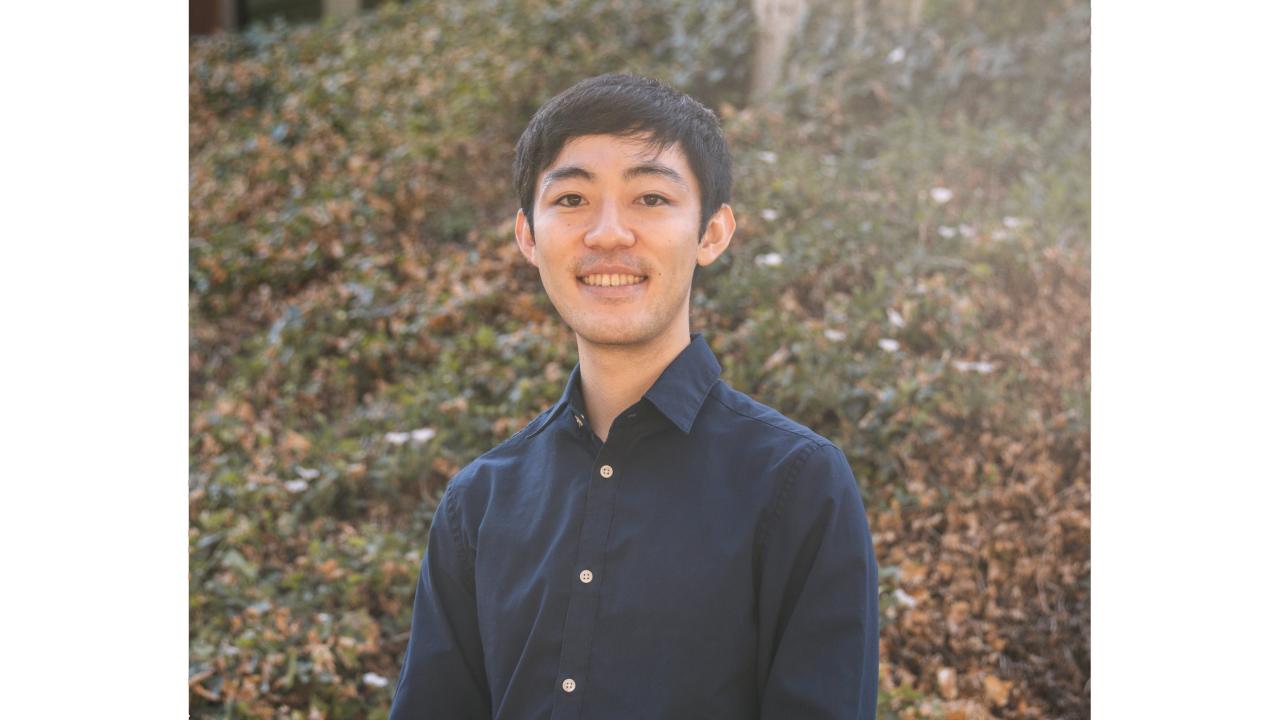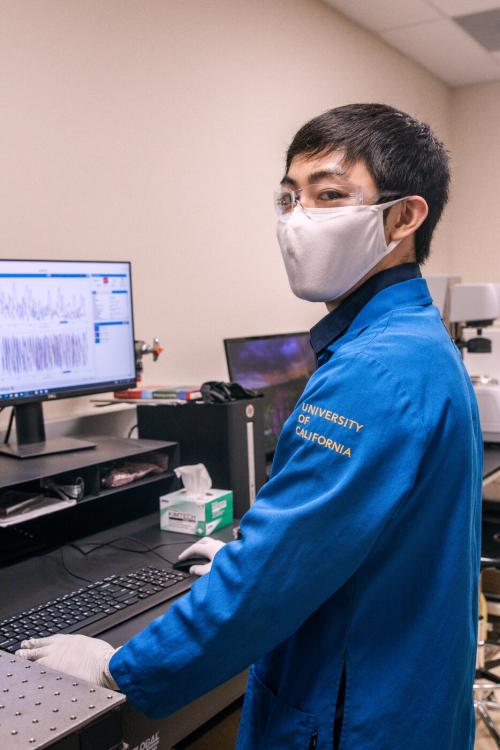
Ph.D. Student Alex Hitomi to Study Biofuel Production at Los Alamos National Laboratory
Fourth-year Biological and Agricultural Engineering Ph.D. student Alex Hitomi received a highly-competitive UC National Lab In-Residence Graduate Fellowship to study ways to improve biofuel production.
In his project, titled “Investigation of Productive Binding Sites on Cellulose Towards Improving Biofuel Production,” Hitomi will study the interaction between cellulose—the substance that makes up plant cell walls—and cellulase, enzymes that can break it down for conversion into biofuel.
Hitomi, part of Professor Tina Jeoh’s Lab, will conduct this research at Los Alamos National Laboratory in New Mexico and carry the long-standing collaborative project forward.
“I’m excited and honored not only by the people who organized this fellowship, but also my PI, Tina Jeoh, and our collaborators, whose ideas helped push me along,” he said.
How Cellulose and Cellulase Interact
Biofuels like ethanol are produced by microbes that digest organic matter—also known as biomass—and convert it into valuable chemicals. The process hinges on the microbes’ ability to digest the biomass, so breaking it down into something they can eat is crucial. Plant-based biomass is abundant and inexpensive, but the cellulose it’s made of is tough, fibrous and notoriously difficult to break down. Specialized enzymes known as cellulase can do it, but it currently takes too long to be feasible.
Working at Los Alamos, Hitomi will combine the Jeoh Lab’s nanoscale microscopic techniques with the lab’s fluorescence microscopy capabilities to study how cellulase binds to cellulose in detail. By learning what makes cellulase tick, the team can potentially facilitate binding and speed up the biofuel conversion process.
“We can combine the micrometer spatial resolution of their instruments with our nanometer-resolved techniques to target which parts of cellulose enzymes bind to and how long they bind for, and identify if there is something we can do to improve this binding, whether it be breaking cellulose mechanically or pretreating it with a specific chemical,” he explained.
Doing this successfully is key to making biofuels an economically-viable alternative energy source. Hitomi also thinks that if successful, these techniques he and the lab have been developing can be used to study other interfacial protein-surface interactions in biotechnology or medical research.
Taking His Turn

Hitomi joined Jeoh’s lab in 2016 as an undergraduate researcher and continued as a graduate student, which is part of what makes him so excited for this project. As an undergraduate and a younger Ph.D. student, he remembers his lab mentors doing research at Los Alamos and all the specialized equipment they were able to use, so he’s thrilled that it’s his turn to experience it.
He also likes that this project is a collaboration through and through. His research builds on previous collaborations between the Jeoh Lab and Los Alamos, and it carries forward ideas and techniques developed by generations of students and collaborators before him.
“It’s cool that I have the opportunity to take their work a step further, and flushing it out myself leaves room for a lot of other people to step in [in the future],” he said.
Hitomi isn’t sure where his research career is going, but he’s looking forward to learning about the “mind-blowing” research at Los Alamos and basking in the lab’s history while learning what’s out there.
“I’m looking forward to seeing which way my research career goes,” he said. “For me, the real joy is in seeing how life kind of changes, just slightly—never in a good or bad way—but something different. That’s always fun to ride along for.”
